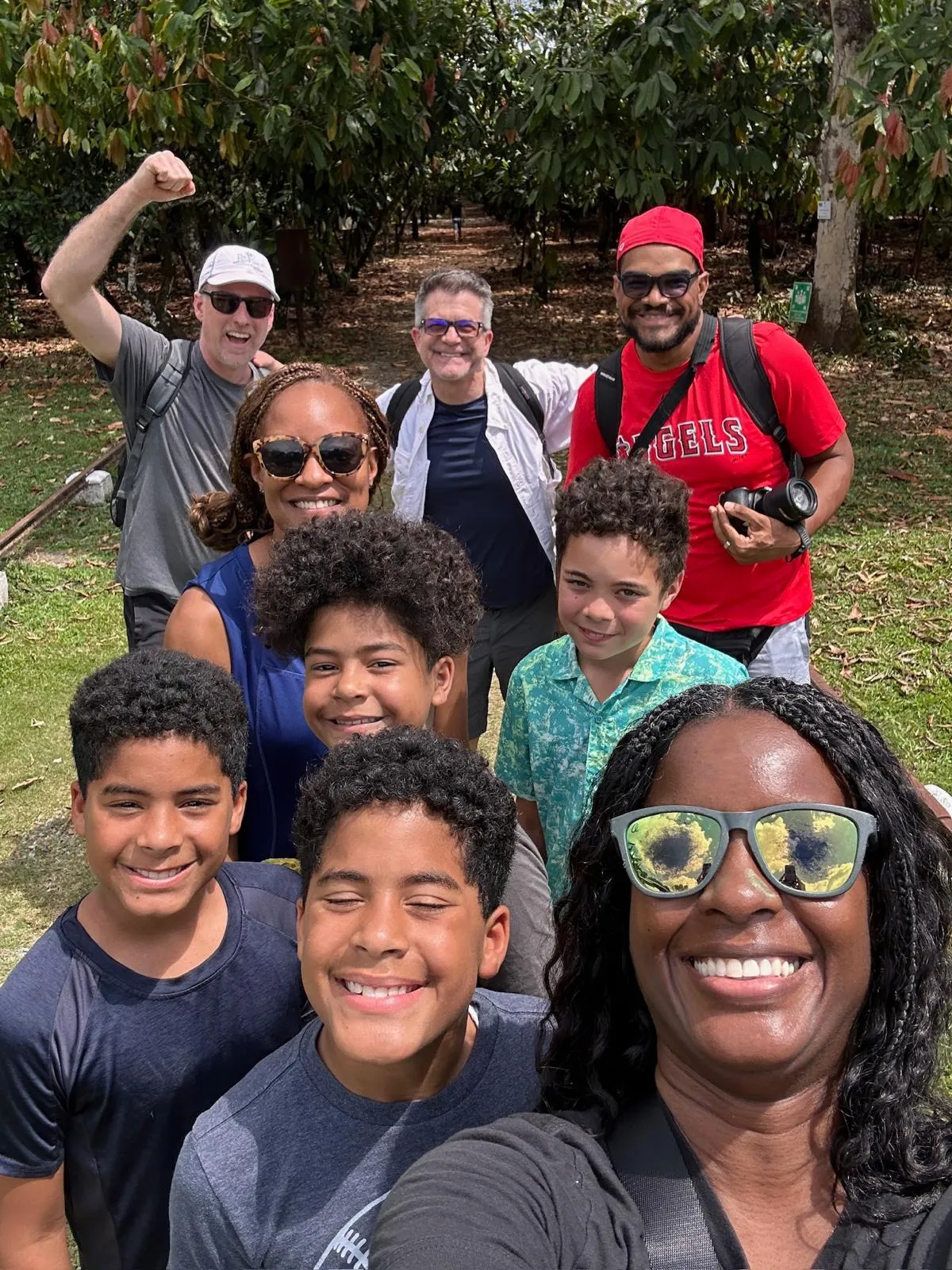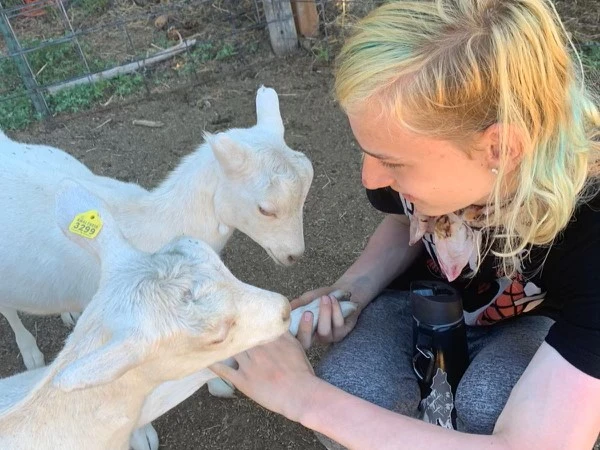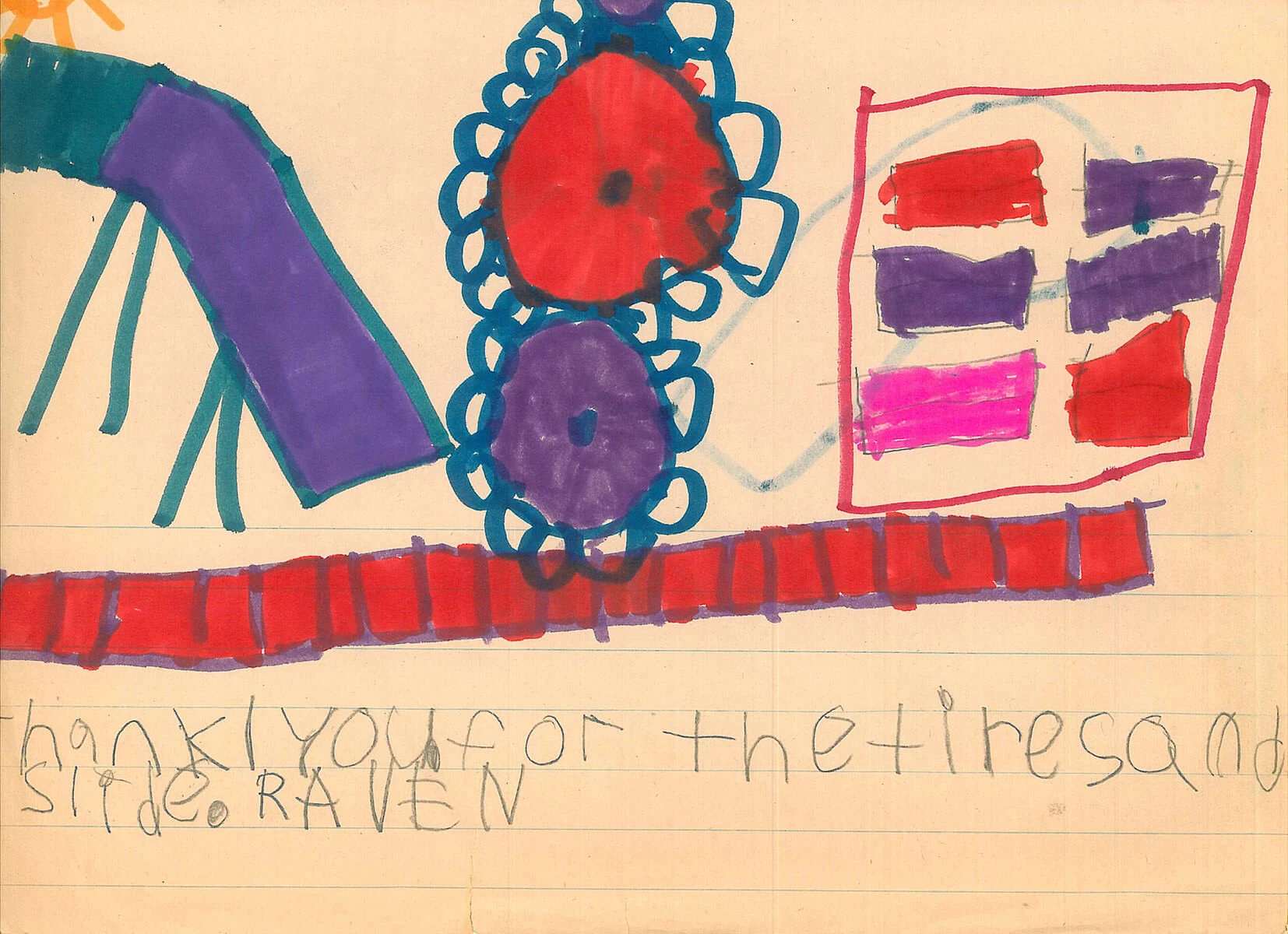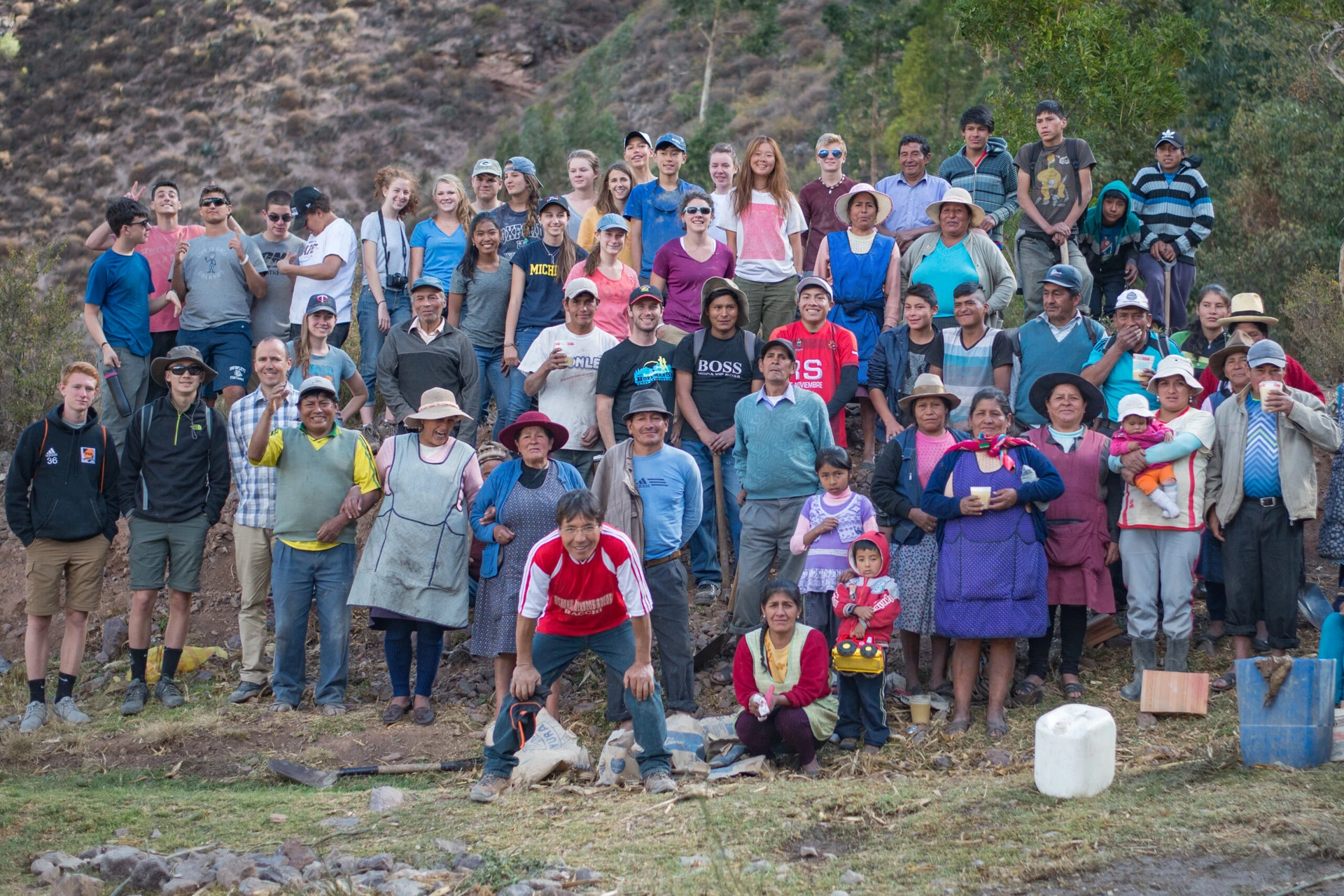A Student from Mexico Experiences the Montana Indian Reservation Culture
Tamara Garcia joined VISIONS Montana Blackfeet for the summer of 2013 from her hometown of Cancun, Mexico. This eye-opening experience taught her how to appreciate the small things in life, it opened up a part of the U.S. culture rarely seen by tourists, and it sparked a drive for her to do more to fight poverty in her home country.
VISIONS: Tell us about your experience on the Montana Blackfeet Reservation.
Tamara: My summer was truly amazing and unforgettable. I saved some of my most precious thoughts in a book I bought in Great Falls, Montana. I write in it every time I experience something valuable, and it has my most significant life lessons. I remember writing in it at the top of a small hill. We had the most amazing view, the freshest air, and animals passed by all the time. At the end, I got to see a black bear crossing a highway, a moose memorable close, a group of horses a few meters away, and of course, many cows. It was a privilege being where we were.
VISIONS: What was a typical day like?
Tamara: We would have breakfast, and then go to work, either on environmental projects or on a local elder’s home. Then we would come back to the ranch, have lunch, and a fun activity. Some days, we just did the activities, like going to the Glacier National Park, camping, attending the pow-wow, meeting people, and going on a road trip. Some nights we had sessions, called kanatapis, with the staff (who were amazing), where we shared personal stories about our time on the program.
VISIONS: What stands out most about the VISIONS experience?
Tamara: How it changes you. It’s like you are lost in time, in a paradise in the middle of nowhere, with new people who are open, funny, and supportive. The stories we shared touched every bit of my heart. It made me feel like a new me; it changed my way of seeing things, of acting, and living. It made me realize how much I had been missing out on in my daily life by not paying attention to my surroundings, and enjoying the little things, like the fresh air. Before, I was living because I had to; I was there to complete a schedule like a robot. The experience helped prepare me to go back to school, repair what was broken in my life, and abandon those who weren’t allowing me to grow and be happy. And I was able to do it in a loving and thankful way. Every time someone asked me about my experience, I could not describe it, and it’s because the deepest things are palpable and understandable only to you.
VISIONS: What kinds of service projects did you focus on?
Tamara: We focused on re-building a house that had been burned by a fire for a man named Pete. We also picked up trash, helped a lady clean her house, did some work on the ranch facilities, and donated things to an organization in need.
VISIONS: What were the people like?
Tamara: The local people are carved deeply in my memories; I fell in love with them there. They have so many things they can teach us about daily life. Every person I talked to was living in the moment and making the best of it. They were living their lives simply, and changing their worlds through small but meaningful steps and everyday actions. I admired them so much for their initiative, beliefs, and personalities. They like to laugh, and they trust you and talk to you. They welcomed us with open arms.
VISIONS: What was it like coming from another country and experiencing this kind of U.S culture?
Tamara: At first I was terrified, because I would have to speak English most of the time. When I got there, I realized I didn’t know how to say a lot of things, even after 10 years of learning the language. I improved my English significantly, and it helped me a lot for my Cambridge exam. My English teacher even told me that I sounded like an American. I was pretty excited about that. I was so immersed in the language that I even started to dream in English.
The people we met were truly remarkable; they were so kind. Experiencing the culture gave me insight into things in my own country. The poverty I saw there was incomparable to the poverty I have a few miles away from my house. The Blackfeet people are suffering, but they still had a better way of living than the poor or indigenous people in Mexico. I couldn’t stop thinking about the people in my home country, and how I had to figure out a way to fix it. It also made me think about all the struggles indigenous people have to overcome nowadays because of a problem that started centuries ago.
VISIONS: What are you up to now?
Tamara: After the summer camp, I participated in an orphanage project in Uganda. And right now I’m starting different projects related to the disappearance of the 43 student teachers in Mexico. We are living a historical political crisis in my country, and it’s time to make changes. My friend and I have been in a lot of things related to activism lately, and we hope to keep that going without any problems. The matter is getting really fragile, and we are fighting for it to not be closed or forgotten like many other cases in the recent history of Mexico.
VISIONS: What kinds of changes would you like to make in the world, big or small?
Tamara: A group of girls at the pow-wow teased us while we were in the event. I remember one of them shouting “Go back to Mexico!” It made me think about how minorities seem to be against minorities instead of protecting each other. It is about a common feeling of anger and impotence, and the common desire to be the powerful race, and the exhaustion of being who you are. Minorities start to believe that they are worthless, and hate begins to grow. My visit to this culture gave me the initiative to want to start something in my country. I must tie up those broken and lost strings between minorities to make them stronger. We have the same unfair and violent history, and we have amazing potential. But I have to start with my people, because every single culture is a wonder, and we mustn’t allow ourselves to mistreat them or lose them.
VISIONS: How did the VISIONS experience help to prepare you for what’s to come?
Tamara: The experience made me look at people with more compassion. It made me focus on my people here, and developed the desire to do something in my country. It helped me to build up my passion for people and fair living.
VISIONS: What do you hope to be doing in 10 years?
Tamara: I hope I am working with an NGO by then or with something regarding Mexico’s social, political, or environmental problems. Also, I really hope to have completed a project like a book, a documentary, or something that provides another point of view for people. What I would love the most is to be creating through something, a seed of empathy and motivation for change that makes everyone think about the many things we have to fix here at home.






